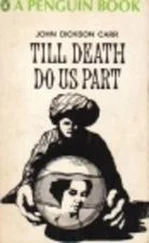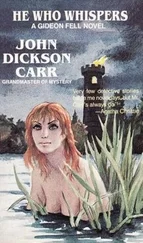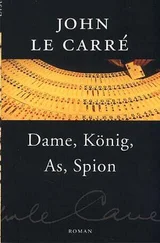John le Carré - A Murder of Quality
Здесь есть возможность читать онлайн «John le Carré - A Murder of Quality» весь текст электронной книги совершенно бесплатно (целиком полную версию без сокращений). В некоторых случаях можно слушать аудио, скачать через торрент в формате fb2 и присутствует краткое содержание. Жанр: Триллер, на английском языке. Описание произведения, (предисловие) а так же отзывы посетителей доступны на портале библиотеки ЛибКат.
- Название:A Murder of Quality
- Автор:
- Жанр:
- Год:неизвестен
- ISBN:нет данных
- Рейтинг книги:5 / 5. Голосов: 1
-
Избранное:Добавить в избранное
- Отзывы:
-
Ваша оценка:
- 100
- 1
- 2
- 3
- 4
- 5
A Murder of Quality: краткое содержание, описание и аннотация
Предлагаем к чтению аннотацию, описание, краткое содержание или предисловие (зависит от того, что написал сам автор книги «A Murder of Quality»). Если вы не нашли необходимую информацию о книге — напишите в комментариях, мы постараемся отыскать её.
A Murder of Quality — читать онлайн бесплатно полную книгу (весь текст) целиком
Ниже представлен текст книги, разбитый по страницам. Система сохранения места последней прочитанной страницы, позволяет с удобством читать онлайн бесплатно книгу «A Murder of Quality», без необходимости каждый раз заново искать на чём Вы остановились. Поставьте закладку, и сможете в любой момент перейти на страницу, на которой закончили чтение.
Интервал:
Закладка:
'Does she sleep there then, Ted? She got a bed there or something?' Rigby asked, and Smiley noticed with pleasure that his Dorset accent was more pronounced when he spoke to Mundy.
'So they say, Bill. I couldn't find no bed when I looked in there Saturday. But I tell you an odd thing, Bill. It seems Mrs Rode used to come up here sometimes, to the chapel, to see Janie.'
'I heard about that,' said Rigby shortly. 'Now which way's the church, Ted?'
'Over the hill,' said Mundy. 'Outside the village, in a paddock.' He turned to Smiley. 'That's quite common round here, sir, as I expect you know.' Mundy spoke very slowly, choosing his words. 'You see, when they had the plague they left their dead in the villages and moved away; not far though, on account of their land and the church. Terrible it was, terrible.' Somehow Mundy managed to imply that the Black Death was a fairly recent disaster in those parts, if not actually within living memory.
They got out of the car, forcing the doors against the strong wind, and made their way towards the village, Mundy leading and Smiley in third place. The driven snow, fine and hard, stung their faces. It was an unearthly walk, high on that white hill on such a night. The curve of the bleak hill's crest and the moaning of the wind, the snow cloud which sped across the moon, the dismal, unlit cottages so cautiously passed, belonged to another corner of the world.
Mundy led them sharply to the left, and Smiley guessed that by avoiding the centre of the village he hoped to escape the notice of its inhabitants. After about twenty minutes' walking, often through deep snow, they found themselves following a low hedge between two fields. In the furthest corner of the right-hand field they saw a pale light glimmering across the snow, so pale that at first Smiley had to look away from it, then run his eyes back along the line of that distant hedge to make sure he was not deceived. Rigby stopped, beckoning to the others.
'I'll take over now,' he said. He turned to Smiley. 'I'd be obliged, sir, if you'd stand off a little. If there's any trouble we don't want you mixed up in it, do we?'
'Of course.'
'Ted Mundy, you come up by me.'
They followed the hedge until they came to a stile. Through the gap in the hedge they saw the church clearly now, a low building more like a tithe barn than a church. At one end a pale glow, like the uncertain light of a candle, shone dimly through the leaded windows.
'She's there,' said Mundy, under his breath, as he and Rigby moved forward, Smiley following some distance behind.
They were crossing the field now, Rigby leading, and the church drawing ever closer. New sounds disturbed the moaning of the storm; the parched creak of a door, the mutter of a crumbling roof, the incessant sigh of wind upon a dying house. The two men in front of Smiley had stopped, almost in the shadow of the church wall, and were whispering together. Then Mundy walked quietly away, disappearing round the corner of the church. Rigby waited a moment, then approached the narrow entrance in the rear wall, and pushed the door.
It opened slowly, creaking painfully on its hinges. Then he disappeared into the church. Smiley was waiting outside when suddenly above all the sounds of night he heard a scream, so taut and shrill and clear that it seemed to have no source, but to ride everywhere upon the wind, to mount the ravaged sky on wings; and Smiley had a vision of Mad Janie as he had seen her earlier that night, and he heard again in her demented cry the dreadful note of madness. For a moment he waited.
The echo died. Then slowly, terrified, he walked through the snow to the open doorway.
Two candles and an oil lamp on the bare altar shed a dim light over the tiny chapel. In front of the altar, on the sanctuary step, sat Jane, looking vaguely towards them. Her vacuous face was daubed with stains of green and blue, her filthy clothes were threaded with sprigs of evergreen and all about her on the floor were the bodies of small animals and birds.
The pews were similarly decorated with dead creatures of all kinds; and on the altar, broken twigs and little heaps of holly leaves. Between the candles stood a crudely-fashioned cross. Stepping forward past Rigby, Smiley walked quickly down the aisle, past the lolling figure of Jane, until he stood before the altar. For a moment he hesitated, then turned and called softly to Rigby.
On the cross, draped over its three ends like a crude diadern, was a string of green beads.
Chapter 8—Flowers for Stella
He woke with the echo of her scream in his ears. He had meant to sleep late, but his watch said half past seven. He put on his bedside lamp, for it was still half-dark, and peered owlishly round the room. There were his trousers, flung over the chair, the legs still sodden from the snow. There were his shoes; he'd have to buy another pair. And there beside him were the notes he had made early that morning before going to sleep, transcriptions from memory of some of Mad Jane's monologue on the journey back to Carne, a journey he would never forget. Mundy had sat with her in the back. She spoke to herself as a child does, asking questions and then in the patient tones of an adult for whom the reply is self-evident, providing the answer.
One obsession seemed to fill her mind: she had seen the devil. She had seen him flying on the wind, his silver wings stretched out behind him. Sometimes the recollection amused her, sometimes inflated her with a sense of her own importance or beauty, and sometimes it terrified her, so that she moaned and wept and begged him to go away. Then Mundy would speak kindly to her, and try to calm her. Smiley wondered whether policemen grew accustomed to the squalor of such things, to clothes that were no more than stinking rags wound round wretched limbs, to puling imbeciles who clutched and screamed and wept. She must have been living on the run for nights on end, finding her food in the fields and dustbins since the night of the murder… What had she done that night? What had she seen? Had she killed Stella Rode? Had she seen the murderer, and fancied him to be the devil flying on the wind?
Why should she think that? If Janie did not kill Stella Rode, what had she seen that so frightened her that for three long winter nights she prowled in terror like an animal in the forest? Had the devil within taken hold of Janie and given power to her arm as she struck down Stella? Was that the devil who rode upon the wind?
But the beads and the coat and the footprints which were not hers—what of them? He lay there thinking, and achieving nothing. At last it was time to get up: it was the morning of the funeral.
As he was getting out of bed the telephone rang. It was Rigby. His voice sounded strained and urgent. 'I want to see you,' he said. 'Can you call round?'
'Before or after the funeral?'
'Before, if possible. What about now?'
'I'll be there in ten minutes.'
Rigby looked, for the first time since Smiley had met him, tired and worried.
'It's Mad Janie,' he said. 'The Chief thinks we should charge her.'
'What for?'
'Murder,' Rigby replied crisply, pushing a thin file across the table. 'The old fool's made a statement… a sort of confession.'
They sat in silence while Smiley read the extraordinary statement. It was signed with Mad Janie's mark—J. L.—drawn in a childish hand in letters an inch high. The constable who had taken it down had begun by trying to condense and simplify her account, but by the end of the first page he had obviously despaired. At last Smiley came to the description of the murder:
'So I tells my darling, I tells her: "You are a naughty creature to go with the devil," but her did not hearken, see, and I took angry with her, but she paid no call. I can't abide them as go with devils in the night, and I told her. She ought to have had holly, mister, there's the truth. I told her, mister, but she never would hearken, and that's all Janie's saying, but she drove the devil off, Janie did, and there's one will thank me, that's my darling and I took her jewels for the saints I did, to pretty out the church, and a coat for to keep me warm.'
Читать дальшеИнтервал:
Закладка:
Похожие книги на «A Murder of Quality»
Представляем Вашему вниманию похожие книги на «A Murder of Quality» списком для выбора. Мы отобрали схожую по названию и смыслу литературу в надежде предоставить читателям больше вариантов отыскать новые, интересные, ещё непрочитанные произведения.
Обсуждение, отзывы о книге «A Murder of Quality» и просто собственные мнения читателей. Оставьте ваши комментарии, напишите, что Вы думаете о произведении, его смысле или главных героях. Укажите что конкретно понравилось, а что нет, и почему Вы так считаете.









